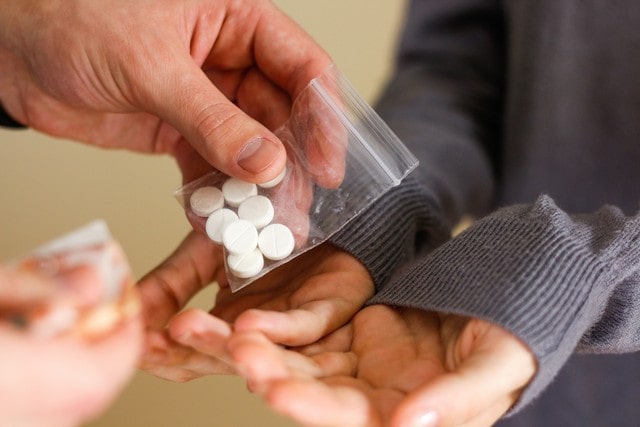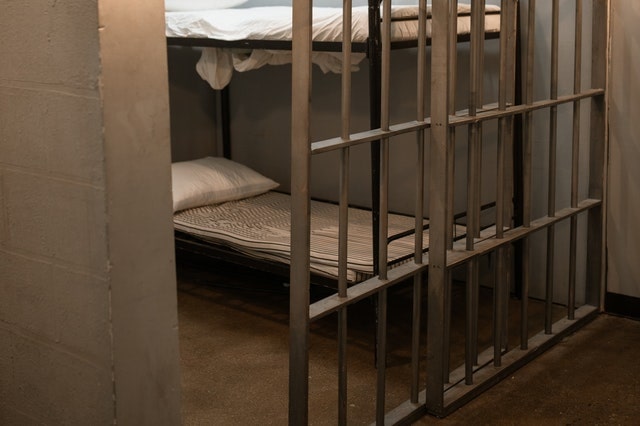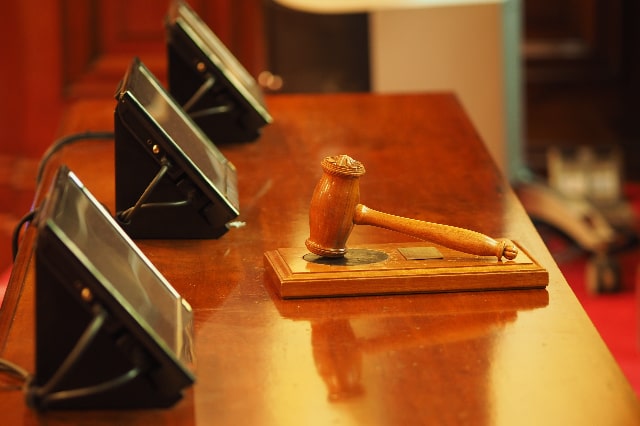Facing drug distribution charges in New York City can be overwhelming, as the consequences are often severe—ranging from long prison sentences to hefty fines and a lasting criminal record.
Even first-time offenders can get serious penalties, depending on the type and amount of the drug involved. Navigating the legal process in a city with multiple law enforcement agencies and varying court procedures across boroughs like Manhattan, Brooklyn, and Queens can feel complicated and fast-paced. It’s important to understand your rights and options in such a high-stakes situation.
At The Fast Law Firm, P.C. in New York City, we assist clients facing drug distribution charges by helping them understand their rights and crafting a defense tailored to their case. With our trial experience and knowledge of law enforcement practices, we carefully examine the evidence, challenge weaknesses in the prosecution’s case, and strive for the best possible outcome. Our familiarity with the local court systems and effective strategies in each borough allows us to guide clients through the process with confidence.
What Constitutes Drug Distribution?
Drug distribution in New York, defined under the New York Penal Law § 220.00, involves the transfer or intent to transfer illegal substances.
Distribution isn’t limited to actual sales; even possessing drugs with the intent to sell is illegal under New York Penal Law § 220.31. Under New York Penal Law § 220.16, the distinction between simple possession and distribution is primarily based on:
- Quantity of the substance (New York Penal Law § 220.09)
- Evidence of intent (e.g., packaging materials, large sums of cash, under New York Penal Law § 220.16 and New York Penal Law § 220.31)
Common Substances Involved in Distribution Cases
Distribution cases frequently involve substances like cocaine, heroin, and marijuana, often classified as controlled substances. Under New York law, different classifications dictate the severity of charges. Schedule I substances like LSD and PCP are strictly regulated due to their high abuse potential, while methamphetamine and prescription opioids often lead to significant legal penalties.
The Bureau of Narcotic Enforcement oversees narcotics and related cases, providing essential regulation and oversight. Understanding these classifications is crucial in navigating legal challenges and potential defenses in drug distribution cases.
Penalties For Drug Distribution In New York City
In New York City, penalties for drug distribution depend on several factors, including the type and quantity of the drug involved, as well as the defendant’s intent. Both state and federal laws impose severe consequences, with potential for significant prison sentences and substantial fines.
State-Level Penalties
Drug distribution is considered a serious felony in New York, and the punishments can vary depending on the classification of the felony. The severity of the punishment is determined by the class of the felony, ranging from Class A-I, which carries the harshest penalties, to Class B.
- Class A-I Felony: A conviction can result in a prison sentence of 20 to 40 years or even life in prison, depending on the case’s circumstances and any aggravating factors, as outlined in New York Penal Law §70.00.
- Class B Felony: A Class B felony conviction can lead to up to 25 years in prison, as per New York Penal Law §70.00.
The exact sentence depends on factors like the type and quantity of the drug involved, whether the defendant has a prior criminal history, and whether there were any aggravating circumstances (such as distributing drugs near schools or to minors). Fines and mandatory parole periods may also be imposed.
The amount of drugs involved plays a critical role in determining the severity of the criminal charge. For larger quantities, mandatory minimum sentences may apply under New York Penal Law §220.21. Additionally, the intent behind the distribution also influences the penalties, with harsher sentences reserved for those intending to profit substantially from drug crimes. For further details, consult the section on “Defending New York Drug Distribution Charges”.
Federal Drug Distribution Charges
Federal drug distribution charges apply in large-scale operations or when drugs cross state lines, invoking the Controlled Substances Act. The penalties for federal drug crimes are significantly harsher than state penalties and often include mandatory minimum sentences.
- Mandatory Minimum Sentences: Federal law requires judges to impose at least a minimum sentence, which can range from 10 years to life in prison, depending on the drug type and quantity.
- Severity: Federal drug distribution sentences can be extensive, with large fines, asset forfeiture, and a permanent criminal record. These penalties are stricter than those in state cases.
Federal charges may lead to enhanced sentencing if certain conditions are met, such as prior convictions or involvement with a criminal organization. Detailed information on federal charges can be found in the “Defending Federal Drug Charges” section.
Defenses To Drug Distribution Charges
In drug distribution cases, crafting a strategic defense can significantly impact the trial’s outcome. Key strategies often challenge evidence, intent to distribute, and procedural errors in law enforcement practices.
Challenging The Evidence
The legitimacy of evidence can often be questioned. Was the evidence obtained through an unlawful search or seizure? Fourth Amendment rights protect against such violations, and evidence procured unlawfully can be deemed inadmissible.
Moreover, the prosecution’s reliance on informants may lack reliability. Informants with ulterior motives can weaken the prosecution’s case, particularly if the sale never occurred or was misrepresented. Claims of entrapment further complicate matters, where defendants might argue they were induced to commit crimes they would not have otherwise considered.
Proving Lack Of Intent To Distribute
Establishing a lack of intent to distribute plays a crucial role in defense. If the drugs were intended for personal use, the charges could be reduced from distribution to simple possession. Evidence such as the quantity of the drugs, absence of paraphernalia indicative of distribution, or direct admissions can aid this argument. Demonstrating an absence of sales records, lack of financial gain, or minimal communication about drug sales may further support the claim of personal use.
Chain Of Custody And Procedural Errors
The integrity of evidence is paramount. Any mishandling during collection or improper documentation can severely impact its admissibility. Errors in the chain of custody can lead to questions about whether the evidence was tampered with or altered. Procedural errors by law enforcement, like failing to follow correct arrest protocols, can provide grounds for case dismissal. It’s essential to scrutinize these areas to ensure the defendant’s rights have not been compromised. For more on strategies for defending drug distribution charges, explore our insights on New York Drug Distribution Charges.
Collateral Consequences Of a Drug Distribution Conviction
A drug distribution conviction brings significant challenges that extend beyond legal penalties. Employment, housing, immigration status, and public benefits can all be negatively impacted, reshaping one’s life entirely.
Impact On Employment And Housing
Having a felony drug conviction on one’s record can severely limit job prospects. Many employers conduct background checks, and a conviction may lead to automatic disqualification. This is particularly true in sectors requiring a high level of trust and responsibility, such as positions in finance or security. Even if an individual secures employment, advancement opportunities may be curtailed due to lingering doubts about reliability or integrity.
Housing options are also drastically affected. Landlords often check criminal histories as part of the rental application process. A drug conviction can lead to denials, potentially forcing individuals into substandard housing situations or limiting their ability to live in desirable neighborhoods. The combination of limited job opportunities and challenges in securing housing further compounds the difficulties faced by those with a conviction.
Immigration Consequences
For non-citizens, a drug distribution conviction can result in devastating immigration consequences.
Under U.S. immigration law, drug convictions can lead to serious consequences, including deportation. These offenses may be considered aggravated felonies under INA § 237(a)(2)(A)(iii) and INA § 101(a)(43)(B), which make deportation mandatory for certain drug crimes. This designation can prevent relief options like cancellation of removal and may permanently bar reentry or affect future efforts to gain legal status.
Even legal residency status is no safeguard, as drug distribution charges can prompt a reassessment of immigration status and potential efforts to remove the individual from the country altogether.
Loss Of Public Benefits And Licenses
A conviction can lead to the loss of several privileges often taken for granted. Many states disqualify individuals with felony convictions from receiving certain public benefits, such as housing assistance or food stamps. In New York, felony convictions can disqualify individuals from certain public benefits, as per PRWORA of 1996, though state exceptions may allow eligibility under N.Y. Soc. Serv. Law § 158.
Moreover, professional licenses necessary for careers in fields like healthcare, education, or law can be revoked. Without these licenses, individuals may be precluded from practicing their profession, effectively stalling their careers. Voting rights might also be affected, with some states imposing restrictions on the ability of convicted felons to vote.
How Fast Law Firm, P.C. Can Help
Our team at Fast Law Firm, P.C. is dedicated to providing strategic and personalized defense for those facing drug distribution charges in New York City. We strive to tailor our approach using our knowledge to get a good understanding of the unique circumstances of each case, ensuring the best possible outcomes for our clients.
Handling Drug Distribution Cases
We have a strong record in state and federal drug distribution cases. Our attorneys use aggressive defense tactics and strategic analysis, focusing on each client’s unique needs. With backgrounds as former prosecutors, we anticipate and counter the prosecution’s strategies to protect our client’s rights.
Investigation & Evidence Review
We thoroughly investigate each case, examining police conduct and evidence to identify flaws or misconduct that could strengthen the defense. We maintain transparency, keeping clients informed and involved throughout the process to build a strong strategy.
Negotiating Pleas & Seeking Dismissal
We negotiate favorable plea deals and pursue case dismissal when possible, exploring alternative sentencing options. Our team works to suppress tainted evidence, ensuring the best possible outcome through meticulous attention to detail and effective legal tactics.
Taking Immediate Action: What To Do If You’re Charged
When faced with these charges, it’s best that you understand your rights and take immediate, informed steps to protect your future and freedom.
Don’t Speak to Law Enforcement Without a Lawyer
Police may use various tactics, such as pretextual questioning or informal interviews, to gain information, which could potentially harm your case. However, remain silent and wait for your legal counsel, as anything you say can be used against you. Assert your right to remain silent and request a lawyer to protect your rights from the start.
Act Quickly to Protect Your Rights
Time is critical in criminal cases. Secure an attorney early to review your case, gather evidence, and develop a defense strategy. Quick action helps challenge missteps and violations, improving your chances for a favorable outcome.
Contact Fast Law Firm, P.C. For A Free Consultation
We offer an immediate, complimentary consultation to address your legal concerns. This initial discussion serves as an invaluable opportunity to outline your defense strategy and explore potential options. Fast Law Firm, P.C. is equipped to provide dedicated and strategic support.
Our team is ready to assess your situation with individualized attention while we defend you. For those facing the complexities of drug distribution charges in New York City, don’t hesitate to reach out for dedicated legal help.






